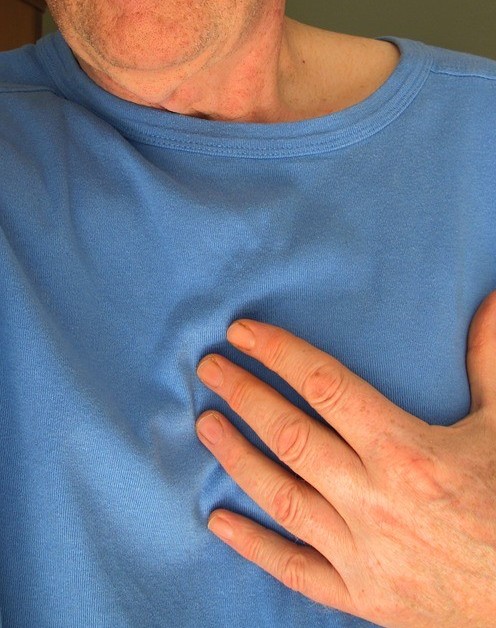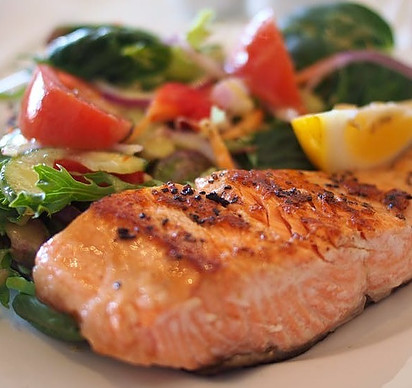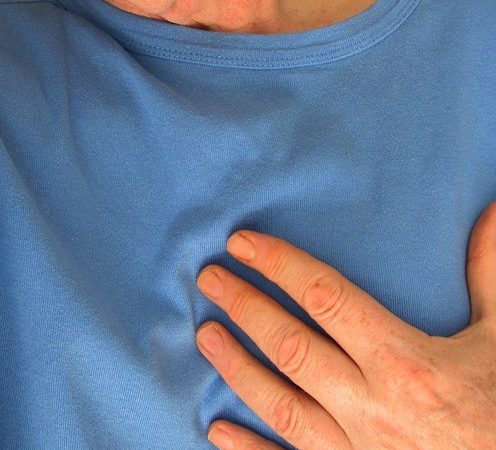Cholesterol can be a confusing topic, but as we get older it is a topic that we can’t avoid. Let’s clear up what are the good and bad of cholesterol and how you can live a healthier life.
This article contains affiliate links, which means that the owner of this website will be paid commissions on qualifying purchases, at no extra cost to the purchaser.
The Good And Bad Of Cholesterol – What You Need To Know
What Is Cholesterol?
Cholesterol is a waxy, fat-like substance that your body needs to stay healthy believe it or not. But when there is too much cholesterol in the blood, it builds up on the walls of the arteries.
Over time, this buildup, called plaque, causes hardening and narrowing of the arteries so that blood flow is slowed down or blocked.
If the blood supply to a portion of the heart is completely blocked, the result is, unfortunately, a heart attack.
 Having high cholesterol levels is one of the major risk factors for developing heart disease, heart attacks and stroke.
Having high cholesterol levels is one of the major risk factors for developing heart disease, heart attacks and stroke.
What Is The Difference Between Good And Bad Cholesterol?
The liver and other cells in the body make about 75% of the body’s cholesterol. The other 25% comes from animal products in our diets.
Many people inherit genes from their parents that increase cholesterol levels. This is called familial high cholesterol.
There are two types of cholesterol:
- Good cholesterol or HDL cholesterol. This is the type that helps prevent the bad cholesterol from getting lodged in the walls of the arteries.
- Bad cholesterol or LDL cholesterol. This is the type that clogs the arteries and increases the risks of heart attacks and strokes.
Triglycerides are another form of fat in the blood that, when elevated are also associated with heart attacks and strokes.
Too little good cholesterol, as well as too much bad cholesterol, increases the risk for heart attacks and strokes.
How Do I Know If I Have Too Much Bad Cholesterol?
A doctor can perform a simple blood test, and this will provide you with information relating to your total cholesterol, LDL cholesterol, HDL cholesterol and Triglycerides.
Unfortunately, high cholesterol in itself does not show any symptoms, so many people are unaware that their cholesterol levels are too high until it is too late.
Everyone should have their cholesterol levels checked at least once in young adulthood and every year if you show problems with cholesterol or as you get older.
To find out how your cholesterol levels affect your risk of heart disease, your doctor will also take into account other risk factors like your age, family history, smoking and blood pressure.
These Are Considered Healthy Cholesterol Levels:
Total Cholesterol – less than 5 mmol/L
LDL Cholesterol – less than 3 mmol/L
HDL Cholesterol (women) – greater than 1.2 mmol/L
HDL Cholesterol (men) – greater than 1.0 mmol/L
Triglycerides – less than 1.7 mmol/L
How Do I Know If I Am At Risk For A Heart Attack Or A Stroke?
Very high-risk individuals include those with:
- A history of heart attack, stroke or circulatory disease
- Diabetes mellitus
- Kidney Disease
- Familial High Cholesterol
In addition to high cholesterol, there are a number of other factors that increase the risks associated with heart disease:
- Smoking
- Overweight/obesity
- High Blood Pressure
- Family history of heart disease (male before 55 years of age and female before 60 years of age)
- Advancing age
- Male gender
How Can I Lower My Cholesterol?
Lowering your cholesterol levels is very important for people of all ages with and without established heart disease.
Cholesterol levels can almost always be lowered with a combination of diet, weight loss, exercise and medications.
As cholesterol levels fall, so does the risk of developing heart disease.
This may result in a lower risk of suffering a heart attack or a stroke.
It is not too late if heart disease is already present because cholesterol-lowering treatment can be lifesaving.
Dietary Tips for Reducing Your Cholesterol Levels
Here are some tips to help you to lower the bad cholesterol in your system.
Eat more omega-3 fats as these are heart-healthy fats:
- Aim to eat fish such as salmon, tuna, mackerel and sardines at least twice a week.
- Flaxseed is another great source of omega-3 fats.

Limit saturated fats and trans fats:
- Eat fewer baked goods like biscuits, cakes and pastries.
- Avoid fatty meat, chicken skin, processed meat, bacon, sausages, whole milk, cream and butter.
- Remove all visible fat before cooking and avoid deep-frying food.
- Avoid hard margarine, shortening, fried foods and packaged foods made with hydrogenated oils.
Eat healthy fats (polyunsaturated and monounsaturated):
- Cook with oils such as olive, sunflower, canola and peanut oil.
- Choose fat-free or low-fat dairy products, lean meat, skinless chicken and fish.
Eat more plant-based foods:
- Eat at least 5 servings of fruit and/or vegetables daily.
- Use beans and soy foods for protein.
Replace all refined carbohydrates with food that is high in fibre:
- Avoid eating products made from white flour like white bread, vetkoek, samoosas and pizzas.
- Eat more wholegrain foods such as oats, barley, crushed wheat, samp, brown rice, whole-grain breakfast cereals, health and seed bread.
Avoid foods high in free sugars such as:
- Sweets, fizzy soft drinks, fruit juices, chocolates, flavoured and sweetened waters, low fat sweetened milky drinks.
Avoid adding salt to food after cooking:
- Choose and prepare foods with little or not salt by using more herbs and spices.
If you are having a problem with your diet, it is a good idea to consult with a registered dietician.
Here are a few helpful books that will teach you how to eat better.

What Lifestyle Changes Can I Make To Reduce My Cholesterol?
Besides eating a healthy diet as explained above, you need to make sure to:
- Achieve and maintain a healthy weight.
- Exercise regularly (at least 30 minutes on all or most days of the week).
- Stop smoking.
The benefits of the above lifestyle changes are usually noticed within 6 to 12 months, but the success rates vary widely and doctors sometimes recommend starting cholesterol-lowering medicines before this time period is over.
What Medicines Lower Cholesterol?
There are many medicines available to help lower cholesterol levels. Your doctor will recommend medicine or a combination of medicines based on your cholesterol levels and other individual factors.
Remember all medication normally has side effects, so the aim would be to try to get your lifestyle choices right so that you are not subjected to taking meds for the rest of your life.
Statins – this medicine decreases the body’s production of cholesterol. It can reduce LDL cholesterol and triglycerides. It can also slightly increase HDL cholesterol levels.
Cholesterol absorption inhibitor – this medicine reduces the body’s ability to absorb cholesterol from food as well as cholesterol that the body makes. It can reduce LDL cholesterol levels.
Bile and sequestrants – This medicine binds to bile acids in the intestine, reducing the amount of cholesterol absorbed from foods.
Fibrates – this medicine can lower triglyceride levels and raise HDL cholesterol levels.
I hope that this article has helped you by explaining the good and bad of cholesterol and how it can affect your life.
To read about foods not to eat over the age of thirty, click here.

